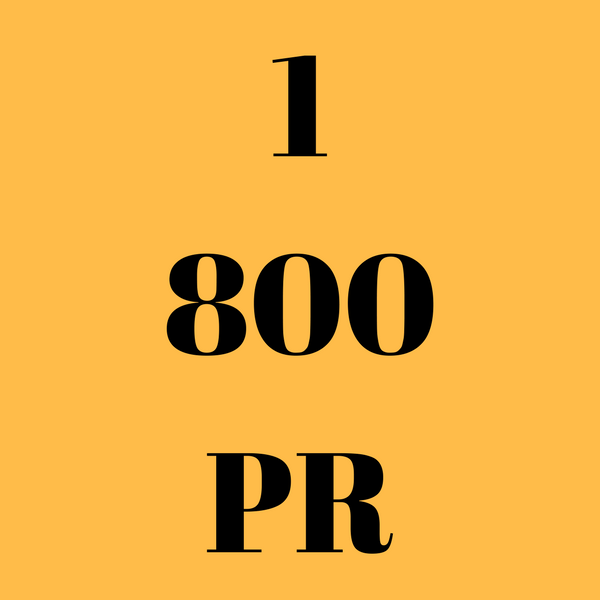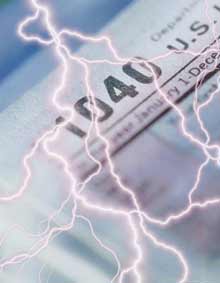Blog
Compelling Reasons to Rollover Your Company Plan Money to an IRA
0 Votes
3200 Views
1) The best case for an IRA rollover is the ability to keep the money growing tax-deferred for your beneficiaries. Many company retirement plans do not allow this strectch option even though the IRA rules permit it. The cusiodian of your company plan does not want to get involved in the administrative nightmare of keeping track of your beneficiaries for 30,40, or 50 years as they take required distributions after you die. So instead, your former company plan could pay your beneficiaries the entire dollar amount of your account in one year or five years at best. It's this simple!
Do you want your retirement account to last 50 years or 5 years for your children and grandchildren? If you want your kids to have the choice to withdraw the minimum amounts over their lifetime, you must rollover your company plan to an IRA. Otherwise, your beneficiaries will be receiving the entire dollar amount of your company plan in one to five years and owe taxes on the entire amount.
2) IRA's provide the ability to have you name many different beneficiaries and the option for those beneficiaries to split the account up after you die. Funds in your company plan are subject to Federal Law requiring participants to name their spouse as the primary beneficiary.
3) Your old company plan typically does not offer a wide variety of investment options to choose from. You can instantly make changes to the investment options in your IRA without going through the red tape of your company plan, where you are now considered an ex-employee. Why speak with an inexperienced phone rep at the company plan, when you can receive better service and more personal attention from your financial advisor?
4) Once you have rolled over your company plan funds to a traditional IRA, you can convert those funds to a Roth IRA (as long as your adjusted gross income is under the $100k income eligibility limit). You cannot directly convert company plan dollars to a Roth IRA. First, you must convert to a traditional IRA.
5) Company plans may have restrictions on withdrawals. In an IRA, you may have immdediate access to your funds, regardless of age. Even if you are under the age of 59 1/2, you can withdraw from your IRA. You'll pay tax and the 10% penalty, but you still have the ability to withdraw quickly. The company plan may have restrictions on withdrawals before the age 59 1/2. If you are no longer working for the company and leave the money in the company plan, it still may take some time to access your cash. If you need it right away, that will put unnecessary pressure on you at a time when the last thing you need is more problems.
John McCartin a Registered Investment Advisor in San Diego, California. John specializes in Retirement Income Planning. He is a member of the distinguished Forbes Magazine Advisory Panel. He is a member of the National Ethics Bureau and a qualifying member of the Million Dollar Round Table putting him in the top 10% of advisors nationwide. John works with peace of mind retirement accounts and works exclusively with pre-retirees and retirees. Visit his website at http://www.promoneyreports.com/johnmac and receive his free monthly newsletter or feel free to call (858) 278-4244 for more information.
Do you want your retirement account to last 50 years or 5 years for your children and grandchildren? If you want your kids to have the choice to withdraw the minimum amounts over their lifetime, you must rollover your company plan to an IRA. Otherwise, your beneficiaries will be receiving the entire dollar amount of your company plan in one to five years and owe taxes on the entire amount.
2) IRA's provide the ability to have you name many different beneficiaries and the option for those beneficiaries to split the account up after you die. Funds in your company plan are subject to Federal Law requiring participants to name their spouse as the primary beneficiary.
3) Your old company plan typically does not offer a wide variety of investment options to choose from. You can instantly make changes to the investment options in your IRA without going through the red tape of your company plan, where you are now considered an ex-employee. Why speak with an inexperienced phone rep at the company plan, when you can receive better service and more personal attention from your financial advisor?
4) Once you have rolled over your company plan funds to a traditional IRA, you can convert those funds to a Roth IRA (as long as your adjusted gross income is under the $100k income eligibility limit). You cannot directly convert company plan dollars to a Roth IRA. First, you must convert to a traditional IRA.
5) Company plans may have restrictions on withdrawals. In an IRA, you may have immdediate access to your funds, regardless of age. Even if you are under the age of 59 1/2, you can withdraw from your IRA. You'll pay tax and the 10% penalty, but you still have the ability to withdraw quickly. The company plan may have restrictions on withdrawals before the age 59 1/2. If you are no longer working for the company and leave the money in the company plan, it still may take some time to access your cash. If you need it right away, that will put unnecessary pressure on you at a time when the last thing you need is more problems.
John McCartin a Registered Investment Advisor in San Diego, California. John specializes in Retirement Income Planning. He is a member of the distinguished Forbes Magazine Advisory Panel. He is a member of the National Ethics Bureau and a qualifying member of the Million Dollar Round Table putting him in the top 10% of advisors nationwide. John works with peace of mind retirement accounts and works exclusively with pre-retirees and retirees. Visit his website at http://www.promoneyreports.com/johnmac and receive his free monthly newsletter or feel free to call (858) 278-4244 for more information.
Vote
0 Votes
You May Also Like...
- Imporant IRA Changes For 2006
- Viewing an Investment Strategy through a New Pair of Glasses
- Thinking About Investing on Your Own? Be Wary of These 5 Traps for Unsophisticated Investors
- Dealing With Stock Market Corrections: Ten Do's and Don'ts
- Investment Management Strategy: Seven Principles for Success







